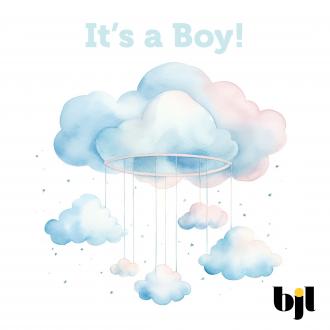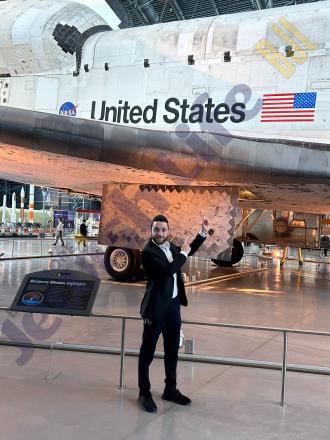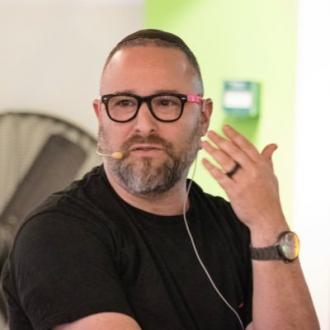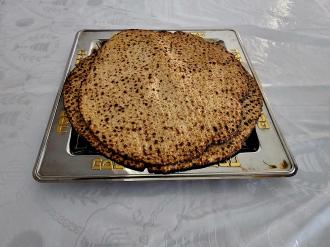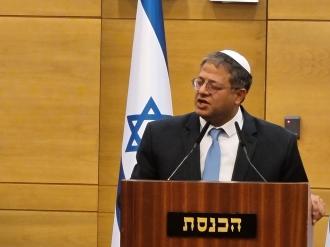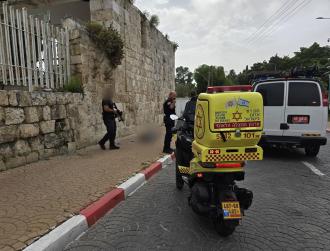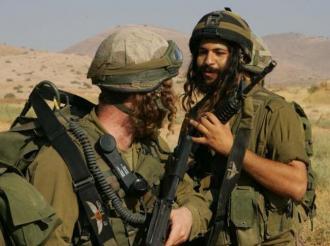Jerusalem, Il - April 14, 2021 - A memorial service in honor of fallen IDF soldiers and those from the Charedi units and adapted for the religious community, was held at Jerusalem’s Shalva hall last night, and broadcast online to the general public. The evening was dedicated to the memory of fallen Charedi soldiers, including those from the IDF’s first Nachal Charedi unit established in the early 1960’s, which until after the Yom Kippur War, as well as all IDF Charedi units. This is the third consecutive year the Charedi memorial service was held and was the initiative of the Netzach Yehuda Association, in cooperation with the Welfare and Security Division of the Ministry of Defense, Director of Charedi IDF Military Units, and the Jerusalem municipality. This year’s theme, Nafsho Keshura B’nafsho, “His Soul is Bound to His Soul," emphasized the connection between the Charedi soldier and all parts of Israeli society.
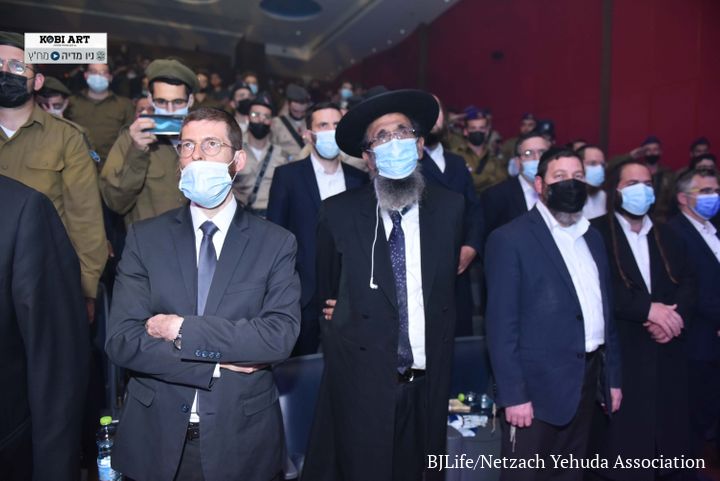
The ceremony opened with the memorial Kaddish prayer, recited by Moti Mor-Yosef, father of Yuval Mor-Yosef, who was murdered in a shooting attack near Givat Assaf. Rabbi Yitzhak Bar-Haim, a founder of Netzah Yehuda, recited a chapter of tehillim. The moving memorial prayer, El Malei Rachamim, was sung by IDF Chief Cantor Shai Abramson accompanied by the Military Rabbinate Choir following the memorial siren.
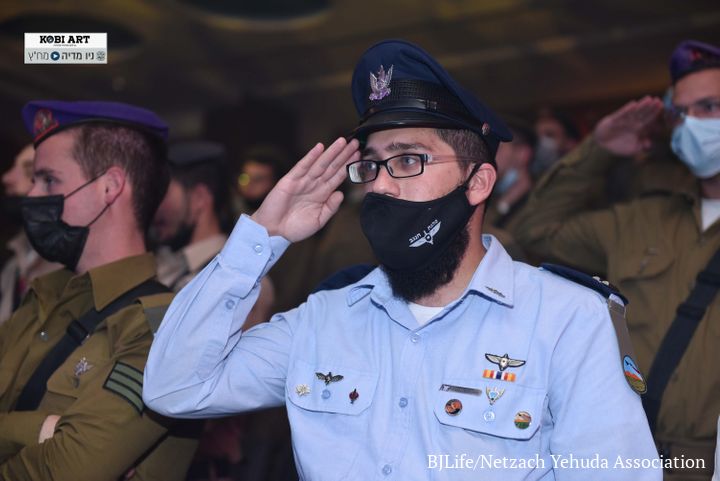
The ceremony, first held in 2019 with some 1,200 people, was attended by hundreds of religious soldiers and members of the bereaved families. Among the dignitaries were Sephardi Chief Rabbi, Yitzchak Yosef (the “Rishon LeZion”); Jerusalem’s rabbi, Rabbi Shlomo Amar; Minister of the Interior Aryeh Deri; Jerusalem Mayor Moshe Leon; Netzah Yehuda Battalion rabbis; Yossi Levy, Director of Netzah Yehuda Association and David Hager, Founder and Chairman of the Netzah Yehuda Association. IDF representatives included Brigadier General Moshe Zin, Deputy Director General and Head of Civilian Security in the Ministry of Defense; Udi Dror, Head of Recruitment, Division of Civilian Security of the Ministry of Defense; and Brigadier General Amir Vadmani.
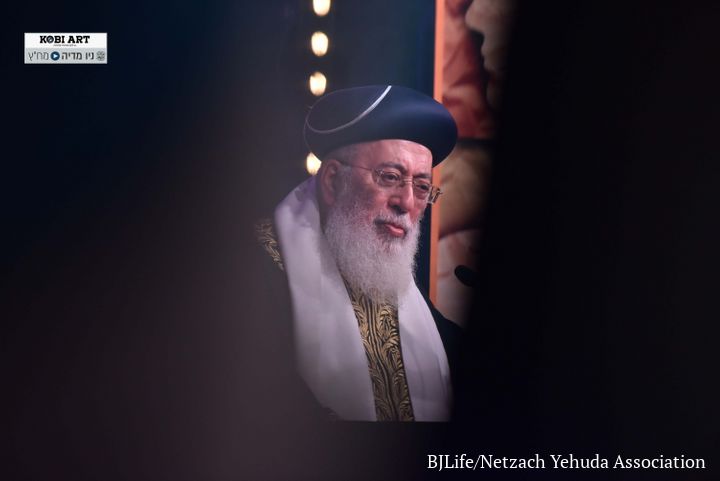
"We gathered here today in memory and in honor of our dear sons who gave their lives for the Land of Israel and the people of Israel, and in doing so, sanctified Heaven both in life and through their deaths,” said Rabbi Reuven Bitton, who represented the bereaved parents, and father of fallen IDF soldier Eliyahu Bitton. “Our forefather Avraham was faced with the most difficult test, that of the akeda (sacrifice). But we know that the difficulty for Yitzhak avinu was greater than for Avraham -- giving of himself as a sacrifice, doing so with his whole heart and soul to the will of G-d. What made Avraham’s experience special? After all, Yitzhak’s near sacrifice was a one-time event, while Avraham carried his pain every day and every hour until his final day. As a bereaved father, he carried the memory and the pain with him. We bereaved parents have been chosen by Divine Providence to withstand this test of faith. We thank the Creator, who gives us the strength to deal with our grief, pain and loss. May it be His will that we merit seeing the vision of Tehiyat hametim, (resurection of the dead)."
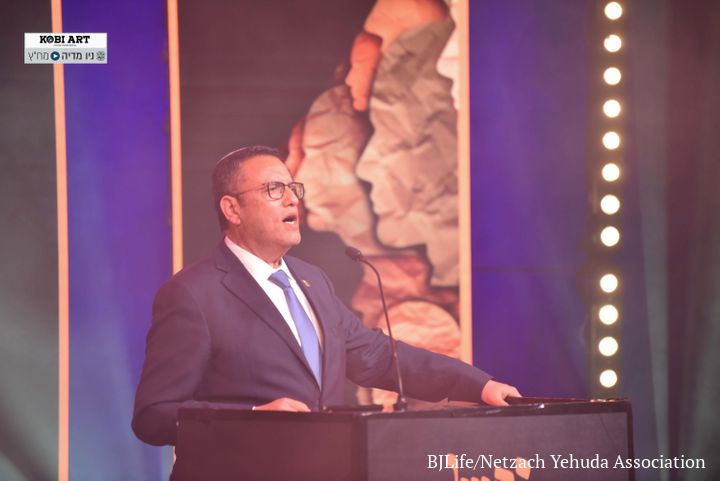
Rabbi Shlomo Amar, Chief Rabbi of Jerusalem said: "Since our people have been in existence we have been in danger. The “Beit Yosef,” author of the Shulchan Aruch, was among those expelled from Spain. He was promised three things: Yishuv Ha'aretz, (return to the Land of Israel); compiling the Shulchan Aruch; and to be killed in the sanctification of G-d’s name. He merited a return to the Land of Israel and he completed the Shulchan Aruch, but he was not killed in G-d’s name, and he regretted that the most. Soldiers who sanctify G-d’s name in their lives through Torah study, prayer, and in keeping the commandments, they are the heroes fulfilling G-ds word. And those killed in sanctifying G-d’s name - who can describe to level they reached. These are angels sent in the form of human beings to protect the people of Israel and G-d’s land.”
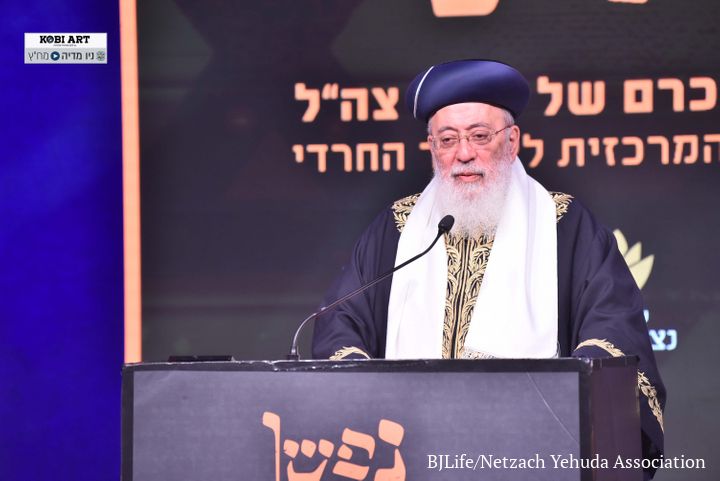
Yossi Levy, CEO of Netzach Yehuda, which accompanies all Haredi soldiers on ultra-Orthodox routes in the IDF, said: "Tonight we gather for the annual memorial. Last year we held an isolated and remote memorial ceremony. This year we get to remember and even hug the families who are very dear to us. This year, following right after Pesach, which symbolizes the redemption of Israel and the hope that the fallen have instilled in us, this evening symbolizes the unity of the people of Israel, an evening that proves that all gaps in society can be bridged. Yes, Haredi public, together with the general public, also shares the memory and knows how to remember the fallen."
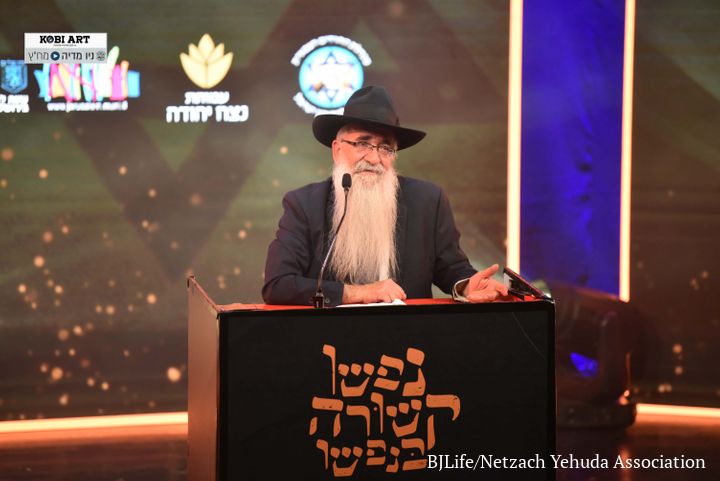
Interior Minister Aryeh Deri warmly recalled the love of the late Rabbi Ovadia Yosef towards the soldiers. “He would ask us to imagine who was sitting in the front row, before the Holy One in Heaven,” said Deri. “We would say: our holy forefathers, Moshe Rabeinu, all the fathers of the nation, the prophets, the Tannaic and Amoraic sages. To which he replied, ‘Moshe Rabbeinu and the holy fathers sit in the third row, and in the first two rows are the souls of those who gave their lives in the sanctification of G-d’s name. How G-d loves these holy souls so much.’ Dear parents, blessed are you who have been privileged to raise such children.”
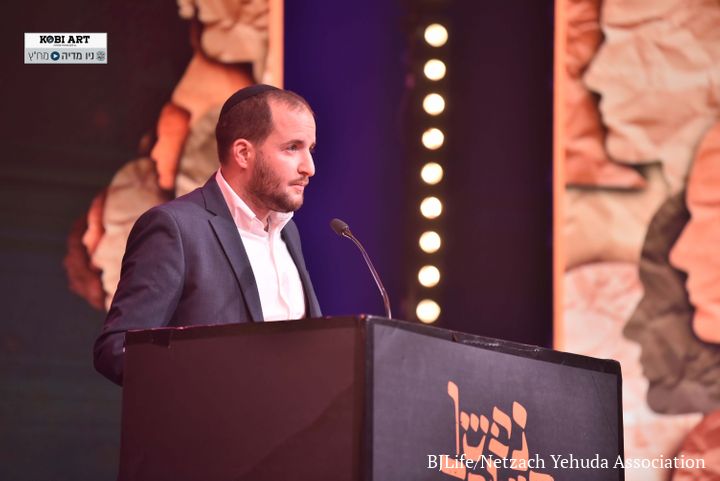
Jerusalem mayor Moshe Leon added: "Tonight we laud the contribution of those soldiers who fell in the struggle to defend our homeland. In death they command us to live, not just in the physical sense, but also in the national and societal sense. Our lives include all shades of Israeli society. Their death sharply illustrates how we are all brothers fighting shoulder to shoulder against the enemy. Tonight, we study Mishnayot and recite Tehillim in honor of the heroism and contribution of the martyrs.”
The ceremony ended with the singing of Hatikva and Ani Maamin (I Believe) led by Akiva Turgeman




